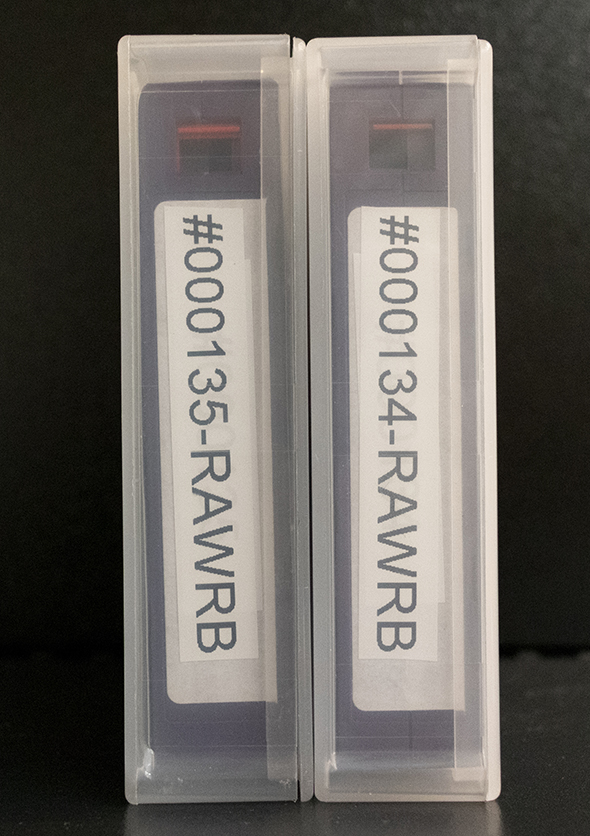Max operate secure, monitored, dual-com-alarmed, environmentally controlled storage facilities in London and Edinburgh. As well as safeguarding our clients’ material for the duration of their digitisation projects, we also offer long-term storage services.
For a full details of our Physical Storage service please contact us using the buttons below or email [email protected].
Along with our Edinburgh studio, we operate from two large production centres located within the Royal Arsenal complex in Woolwich, London. Both facilities have a dual-com alarm system directly connected to the Police, a fully monitored fire alarm system that is connected directly to the Fire Brigade’s monitoring system, security shutters to all accessible windows, full access controls to the building and within various areas of the building, CCTV both internal and external, and 24-hour security patrols within the Royal Arsenal complex.
Our environmental conditions are controlled and systematically monitored by our Conservation Manager and her assistant. Both are fully qualified professional and experienced conservators. The storage areas and digitisation studios are environmentally controlled using fully-serviced air conditioning units and dehumidifiers. These are monitored constantly by Tinytag recording devices to ensure that they do not fluctuate and that the conditions stay within the desired range.
We have a comprehensive pest control regime, including the use of multiple blunder traps along with regular inspections and logging. Where appropriate we prefer that our Conservation Manager attends any project pre-commencement meeting to ensure all aspects of the collection’s condition and our working environment are covered. All Max staff are given training and instruction in the handling of delicate and sensitive material. This training is delivered by our in-house conservators and is based on industry standard guidelines from The National Archives, where we also have a permanent team of 13.
As a company, our guiding principle is that the preservation of the original material is paramount. To this end we have a wide range of equipment to ensure that whatever the size and condition of the original, it is handled gently and with care, and that we can obtain the best images possible without stressing the material in any way. All team members are aware of this and are instructed to stop and seek guidance from one of our conservators should they have any concerns that the material is at risk of damage. Each staff member is trained to respect and safeguard the integrity of the material at all times and to regard themselves as custodians, not just during capture but also during processing, QA and delivery of the final digitised output.
Clients who have entrusted their material to our care in the past 12 months include: AMOT, Lloyd’s Register, HSBC, Fortnum & Mason, Find My Past, Historic Environment Scotland, TNA, Imperial College, King’s College, SOAS, RUSI, Royal Society of Arts, National Trust, TfL, Royal Archives, Sir Quentin Blake, National Portrait Gallery, and many others.
As well as safeguarding our clients’ material for the duration of their digitisation projects, we also offer long-term storage services. Unlike many other storage facilities we provide flexible opening hours, a single dedicated space for the archive rather than it being dispersed across several locations, access to a conservator, and on-demand digitisation for specific items.
Visit the main Max Communications website




